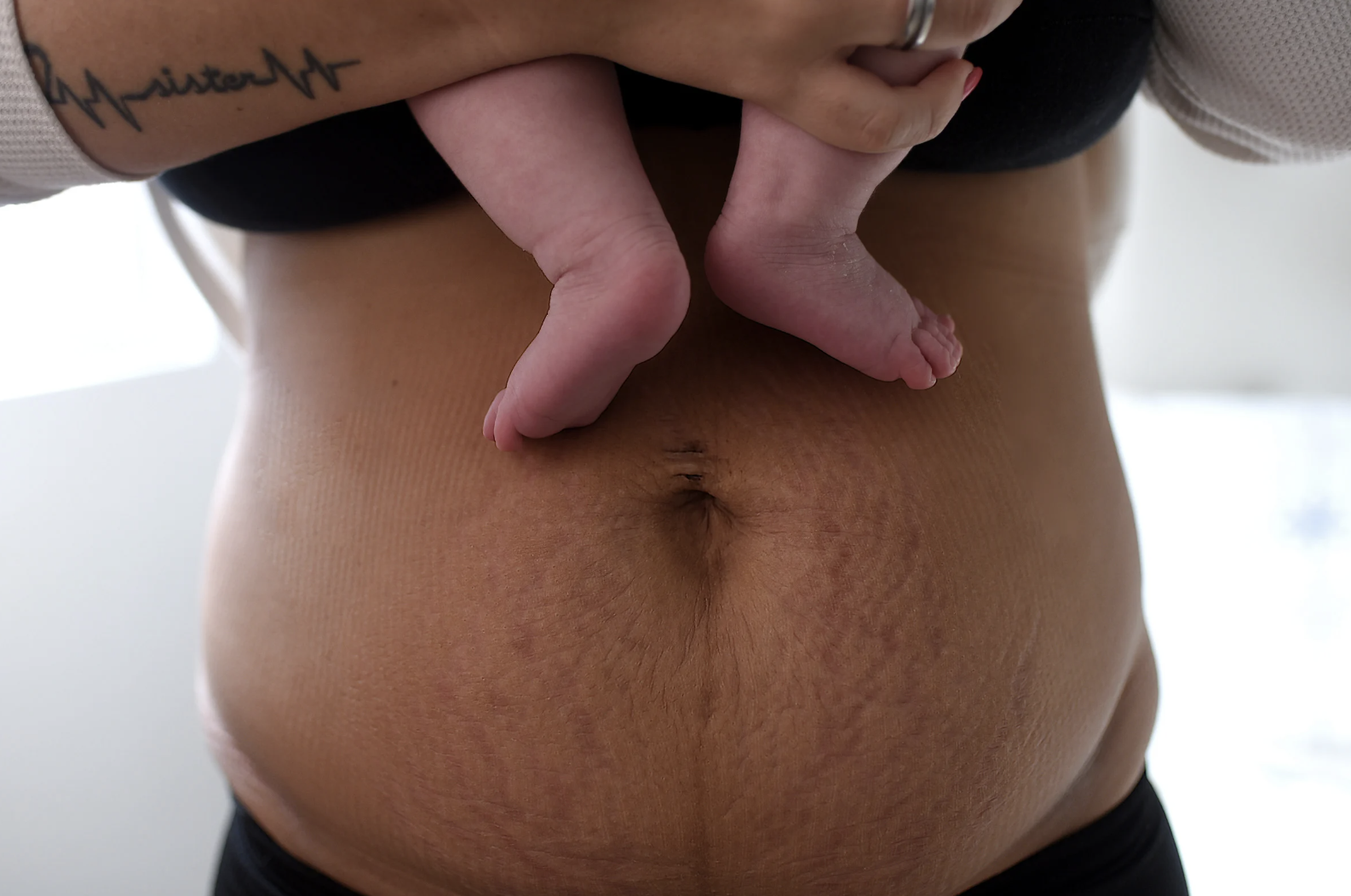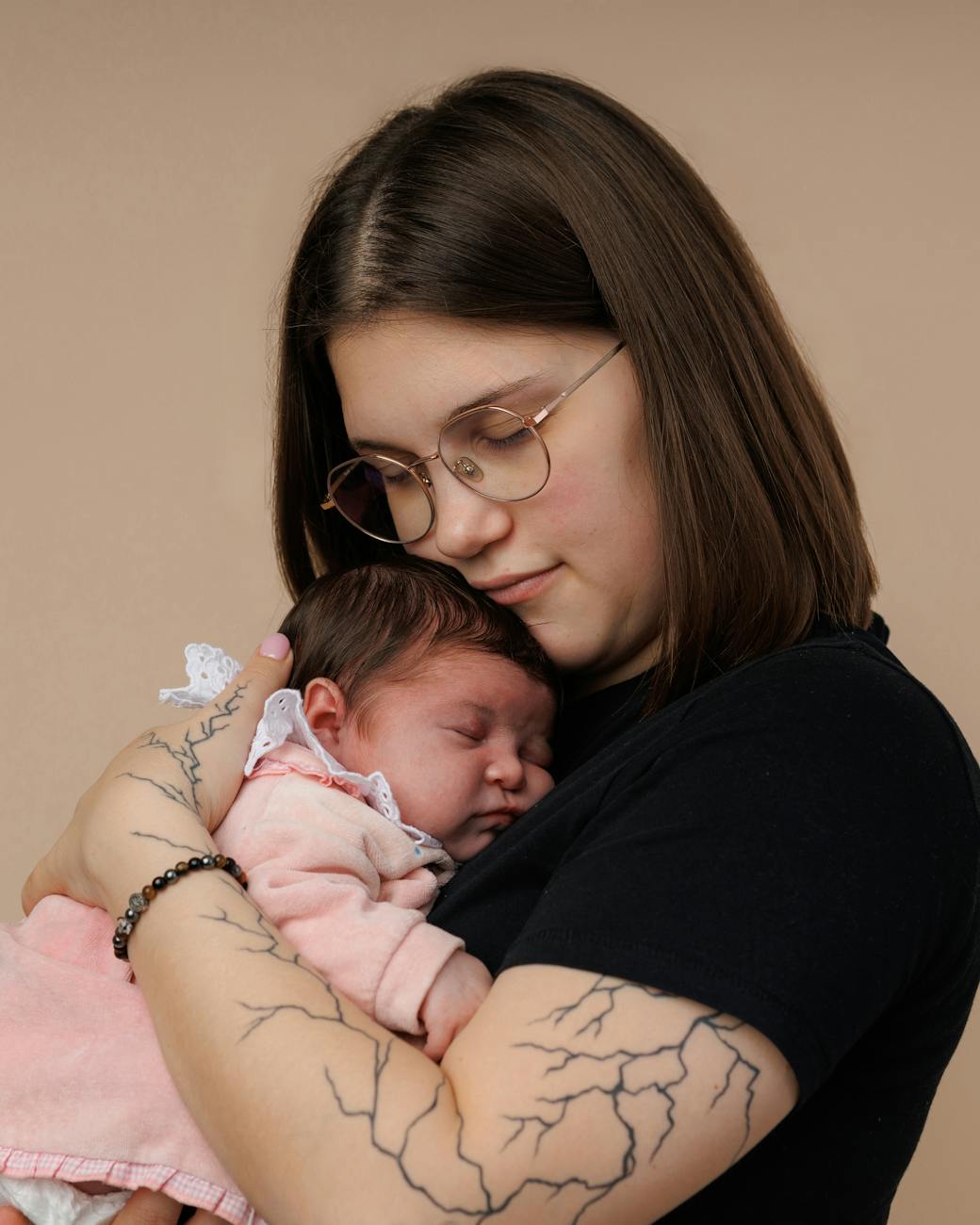Kirsten Fisch, MSN, RNC-MNN, IBCLC, LCCE Kirsten is a women's health nurse who specializes in high-risk pregnancy and postpartum care. She is certified in Maternal Newborn Nursing, a board-certified lactation consultant (IBCLC), and a Lamaze-certified childbirth Educator. She works with women from conception through postpartum. Passionate about empowering women during their reproductive journeys, Kirsten combines evidence-based care with compassionate support to promote health and well-being for mothers and babies.
Bringing a new life into the world is a powerful, beautiful, and sometimes overwhelming experience—especially if you’re over 35. While every postpartum journey is unique, women in this age group may face a few additional considerations during recovery. The good news? With some planning, the right support, and some grace toward yourself, you can confidently navigate this season.
What’s Different About Postpartum Recovery After 35?
Age doesn’t define your ability to bounce back, but biology and life circumstances can play a role. Here are a few things women over 35 may notice during postpartum recovery:
1. Healing May Take a Bit Longer
Our bodies change with age, and recovery can be slower. Whether you’ve had a vaginal birth or C-section, tissue repair, muscle recovery, and energy levels may not rebound as quickly as they might have in your 20s. That doesn’t mean you won’t fully recover—it just means patience is your best friend.
2. Preexisting Conditions Matter
Women over 35 are more likely to have preexisting conditions like hypertension, diabetes, or thyroid issues that can impact postpartum healing. It’s important to keep up with postpartum checkups and continue managing chronic conditions with your healthcare provider.
3. Mental Health Should Be Front and Center
Postpartum depression and anxiety don’t discriminate by age, but older moms might be juggling more stress—career responsibilities, caregiving for aging parents, or managing multiple kids. Don’t hesitate to seek support if you feel overwhelmed. Therapy, support groups, or even a postpartum doula can make a world of difference.
Recovery Tips Tailored for 35+
Here’s how to support your mind and body as you heal:
Prioritize Rest—Even If It’s in Small Doses
Quality sleep can be challenging, but even short periods of rest throughout the day can help your body repair. Don’t be afraid to ask for help from your partner, friends, or a postpartum support team.
Nourish Your Body Thoughtfully
Nutrition plays a key role in recovery. Focus on whole foods that support hormone balance and tissue repair—think iron-rich leafy greens, omega-3s, lean protein, and plenty of fluids. Consider checking in with a registered dietitian familiar with postpartum care.

Ease Into Movement
Once your provider gives the green light, gentle movement like walking, yoga, or pelvic floor exercises can help restore strength and circulation. Listen to your body. This isn’t about “bouncing back”—it’s about reconnecting with yourself.
Stay on Top of Follow-Ups
Your six-week checkup is important, but don’t stop there. Speak up if anything feels off physically or emotionally. Pelvic pain, heavy bleeding, bladder changes, or mood swings are worth discussing—even months after birth.
Connect With Other Moms
Whether through online communities, local support groups, or a few trusted friends, surrounding yourself with people who understand your journey can ease isolation and provide valuable insight.
Remember: You’re Not “Behind”—You’re Right on Time
There’s no deadline for postpartum recovery. At 35 or 45, your body deserves time, care, and compassion. The pressure to “do it all” can be extreme for older moms who may feel they need to prove something. The truth? Just being present for yourself and your baby is more than enough.
You’ve got the wisdom, strength, and resilience to recover fully—and thrive.

Kirsten Fisch, MSN, RNC-MNN, IBCLC, LCCE Kirsten is a women's health nurse who specializes in high-risk pregnancy and postpartum care. She is certified in Maternal Newborn Nursing, a board-certified lactation consultant (IBCLC), and a Lamaze-certified childbirth Educator. She works with women from conception through postpartum. Passionate about empowering women during their reproductive journeys, Kirsten combines evidence-based care with compassionate support to promote health and well-being for mothers and babies.




